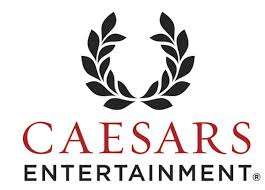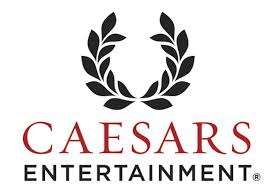Another Debtor Lawsuit Filed in Caesars CEOC Bankruptcy Morass
The deepening legal and financial snakepit that is the Chapter 11 bankruptcy of Caesars Entertainment’s primary operational unit now includes a lawsuit pitting differing groups of lienholders against each other in the ongoing battle to protect rights and interests amid the turbulent fight for Caesars’ assets.
 The latest sideshow in the bankruptcy, declared back in January, of Caesars Entertainment Operating Company (CEOC) finds a group of CEOC’s aggrieved “second lien” debtholders filing suit against a group of Caesars’ primary lenders over language included in a bankruptcy document called the “Final Cash Collateral Order,” which was issued by the Illinois bankruptcy court of Judge A. Benjamin Goldgar in late March.
The latest sideshow in the bankruptcy, declared back in January, of Caesars Entertainment Operating Company (CEOC) finds a group of CEOC’s aggrieved “second lien” debtholders filing suit against a group of Caesars’ primary lenders over language included in a bankruptcy document called the “Final Cash Collateral Order,” which was issued by the Illinois bankruptcy court of Judge A. Benjamin Goldgar in late March.
The lawsuit by the second-lien group, which has been defined and approved by Judge Goldgar as the Statutory Unsecured Claimholders Committee, asks for a declaratory judgment on several issues involving liability while alleging that the March order is in error in a handful of different specifics, and would violate sections of the United States’ Bankruptcy Code if left uncorrected.
The lawsuit also asserts that if not challenged, the Final Cash Collateral Order would take effect against all parties involved in Caesars and CEOC’s complicated, multi-year refinancing efforts. The Statutory Unsecured Creditors Committee (UCC) is among the groups who would be covered by the order in the absence of a direct challenge.
The lawsuit names several defendants, all of whom served as primary lenders and marketers of Caesars and CEOC debt. The named defendants include: BOKF, N.A. (BOK Financial, formerly known as the Bank of Oklahoma); Credit Suisse AG (Cayman Islands Branch); Delaware Trust Company, FSB; UMB Bank, N.A.; and Wilmington Savings Fund Society. The group of lenders are described as successor indenture trustees of various debt issues in Caesars and CEOC holdings that were marketed between 2008 and 2013.
At issue is language within the Final Cash Collateral Order that attempts to place certain liabilities upon the UCC second-lien group, defining these and other obligations of the “Subsidiary Pledgors” as “legal, valid, binding, enforceable, and nonavoidable.” This comes despite those supposed obligations being very much under legal challenge themselves. As several counts in the lawsuit note, “An actual, substantial, and justiciable dispute currently exists concerning the Subsidiary Pledgor Stipulation,” a reference to other lawsuits connected to the CEOC bankruptcy brought by plaintiffs who are part of the UCC group.
The UCC group was defined in February by another judge in the case, who found that the group’s interests were best served by such a collective. Caesars and the primary lenders tried unsuccessfully to have the UCC group dissolved in March but were rebuffed in their efforts by Goldgar, who ruled that the group was created in order with standard bankruptcy proceedings and practices and hence would not be dissolved.
Among the various allegations contained in the latest five-count lawsuit are that the Final Cash Collateral Order not only failed to list the “Subsidiary Pledgors” specifically, it also failed to identify a large group of Caesars-related entities whose operations are inextricably linked to the ongoing operations of Caesars and CEOC.
The lengthy list of secondary Caesars business entities the UCC group believes was improperly omitted includes many holding groups tied to specific Caesars properties. The latest list: Caesars Massachusetts Acquisition Company, LLC; Caesars Massachusetts Investment Company, LLC; Caesars Massachusetts Development Company, LLC; Caesars Massachusetts Management Company, LLC; Laundry Parent, LLC; Parball Parent, LLC; Flamingo-Laughlin Parent, LLC; FHR Parent, LLC; LVH Parent, LLC; Caesars Baltimore Development Company, LLC; Caesars Baltimore Acquisition Company, LLC; Caesars Baltimore Management Company, LLC; BPP Providence Acquisition Company, LLC; Corner Investment Company Newco, LLC; HIE Holdings Topco, Inc.; 3535 LV Parent; Caesars Escrow Corporation; Caesars Operating Escrow LLC; Des Plaines Development Limited Partnership; PHW Investments, LLC; PHW Las Vegas, LLC; PH Employees Parent, LLC; CG Services, LLC; Christian County Land Acquisition Company, LLC; Caesars Air, LLC; CZL Management Company, LLC; JCC Holding Company II Newco, LLC; Cromwell Manager, LLC; The Quad Manager, LLC; Bally’s Las Vegas Manager, LLC; Octavius Linq Holding Co., LLC; and Caesars Entertainment Windsor Limited.
The overriding issue, of course, is who’s going to be left holding the empty bag that represents billions of dollars of uncollectable Caesars debt. Caesars and its primary lenders are alleged by several classes of the aggrieved CEOC lien holders to have undertaken a complex restructuring that moved most of Caesars’ money-losing properties and assets into the moribund CEOC unit, while keeping profitable entities protected within other corporate entities.
The complex maneuvering is ultimately designed to leave in charge of Caesars the hedge-fund groups who acquired the company, then known as Harrah’s, back in 2006. Apollo Global Management and TPG Capital purchased Harrah’s in a highly-leveraged buyout that was doomed only months later, when the global housing and investment bubble that created the conditions for the leveraged buyout itself collapsed.
Since then, Harrah’s/Caesars has thrashed under a debt load approaching $20 billion, with no long-term exit strategy existing save the bankruptcy plan the company’s CEOC unit filed in January. That is was only the CEOC unit doing the bankruptcy filing, however, and not all of Caesars, is at the core of the restructuring and financing battles that are sure to be argued in Goldgar’s court for the next several years.




















COMMENTS